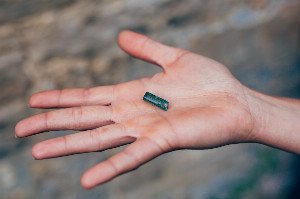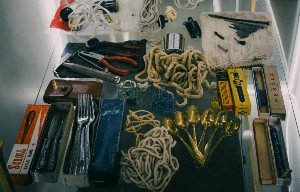Michael Allen
Rethinking Old Problems: Matriliny, Secret Societies and Political Evolution
Introduction
Rethinking old problems: matriliny, secret societies and political evolution. Re-evaluate matriliny, secret societies, and political evolution in Melanesia. Analyzing classic ethnographies, this study explores cultural distribution & societal change.
Abstract
MY EARLY INTEREST in the comparative study of male initiation rites and secret societies in Melanesia (Allen 1967) had been in large measure generated through reading the old ethnographies that dealt with the great variety of elaborate male rites found in the Torres, Banks and north Vanuatu islands. The early workers, especially Rivers (1914), but also Layard (1942) and Deacon (1935), devoted considerable attention to the task of understanding the contemporary distribution of cultures. Impressed by the complex and seemingty unpredictable way in whiGh similar cultural items appeared in diverse social contexts in neighbouring communities, they concluded that the resultant patterns of distribution must be consequences either of internal evolution, as in the supposed advance from matriliny to patriliny, or of the historical movement of peoples and cultures.
Review
The paper, *Rethinking Old Problems: Matriliny, Secret Societies and Political Evolution*, proposes a critical re-examination of enduring anthropological questions, particularly concerning the cultural dynamics of Melanesia. The abstract clearly establishes the historical context, rooting the author's interest in the comparative study of male initiation rites and secret societies in foundational ethnographic works by Rivers, Layard, and Deacon. It highlights how these early scholars grappled with the complex distribution of cultural items, seeking explanations through models of internal evolution—such as the hypothesized progression from matriliny to patriliny—or through the historical movement of peoples and cultures across the Torres, Banks, and north Vanuatu islands. This sets the stage for a timely engagement with long-standing theoretical frameworks in regional ethnography. The explicit aim to "rethink" these historical analyses is a significant strength. By revisiting the interpretations and conclusions of previous generations of ethnographers, the paper positions itself to challenge, refine, or offer alternative explanations for cultural change and political development in Melanesia. The abstract’s emphasis on the "complex and seemingly unpredictable way in which similar cultural items appeared in diverse social contexts" suggests a nuanced approach, moving beyond simplistic linear evolutionary or diffusionist models. This critical re-evaluation promises to shed new light on the intricate interplay between social organization (matriliny), ritual practices (secret societies), and evolving political forms in the region. To fully deliver on its ambitious title, the paper would ideally leverage contemporary theoretical advancements and perhaps new empirical data to offer fresh perspectives on these "old problems." Readers would anticipate a robust methodological approach that not only deconstructs the assumptions of earlier ethnographers but also proposes alternative explanatory frameworks, grounded in current anthropological discourse on agency, practice, and historical contingency. Such a comprehensive re-examination of foundational data through a contemporary lens is crucial for advancing our understanding of cultural evolution and historical processes in the Pacific, making this a potentially significant contribution to both regional studies and broader anthropological theory.
Full Text
You need to be logged in to view the full text and Download file of this article - Rethinking Old Problems: Matriliny, Secret Societies and Political Evolution from Sydney Studies in Society and Culture .
Login to View Full Text And DownloadComments
You need to be logged in to post a comment.
Top Blogs by Rating
The Invisible Hand of Defaults...
By Sciaria
Beyond Repair Shops: Unlocking...
By Sciaria
Mycorrhizal Networks: Unearthi...
By Sciaria
Favorite Blog
Unlocking Life's Source Code:...
By Sciaria
Genetic Dark Matter: The Unsee...
By Sciaria
Unveiling the Hidden Journeys:...
By Sciaria





